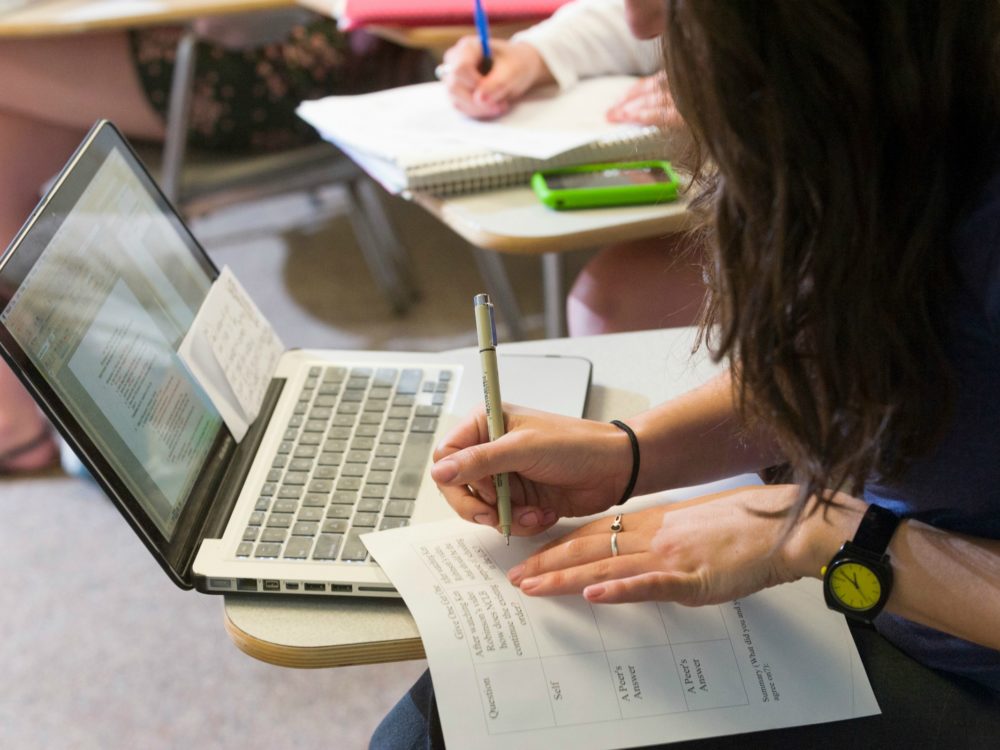What is Family and Consumer Sciences?
With a degree in Family and Consumer Sciences you can help people make informed decisions about their well-being and relationships at any age. Whether you’re teaching in a school or supporting families in a nonprofit, healthcare, or business setting, you can use the research skills and resources you will gain at Colorado State to support their optimal quality of life.
Our program is interdepartmental with an interdisciplinary study that includes the following subjects:
- Family and Consumer Sciences
- Human Development and Family Studies
- Food Science and Human Nutrition
- Health and wellness
- Personal finance
- Design and Merchandising
Why major in Family and Consumer Sciences?
Learn how a CSU Family and Consumer Sciences student chose her major and decided it was the perfect path for her college career and beyond.
One Degree - Two Options
You can choose from two concentrations to tailor your degree to your interests and career goals.
More about Family and Consumer Sciences
What are the roots of Family and Consumer Sciences?
Family and Consumer Sciences is rooted in the first discipline and degree programs developed for young women at Land Grant Universities.
Formerly known by names like Domestic Sciences, Domestic Economy, Human Ecology, Human Environmental Sciences and Home Economics, and Family and Consumer Sciences is much more than what these names imply. It’s a discipline and profession that focuses on an integrative approach to the relationships among individuals, families, and communities as well as the environments in which they function.
This is an undergraduate or post-bachelor degree program and is available on-campus only.
How do I become licensed to teach Family and Consumer Sciences?
Depending on your current situation, there are four routes to becoming a licensed Family and Consumer Sciences teacher:
- If you have a high school diploma or community college credits, you can begin the undergraduate program with the teacher licensure component.
- If you have a bachelor’s degree and want to become licensed to teach Family and Consumer Sciences, you can apply for the post-bachelor Family and Consumer Sciences licensure program.
- If you have a bachelor’s degree and want to become licensed while also earning a master’s degree, you can apply for the Master of Education degree with a teacher licensure component.
- If you are licensed in another subject matter area and want to add the endorsement in Family and Consumer Sciences, you can explore the option of adding an additional endorsement/pathway in Family and Consumer Sciences Education.
How do I pursue the post-bachelor option?
Post-bachelor candidates applying for admission must have completed a bachelor’s degree at an accredited institution, and must submit an application for admission to the University through the Center for Educator Preparation, as well as additional application materials, for consideration of admission to the licensure program.
Requirements and additional information may be found on the center’s post-bachelor’s teacher licensure page.
How do I learn more about a master's degree and teacher licensure?
The best way to determine if a master’s degree is the right option for you is to contact program chair Dawn Mallette. Dr. Mallette will complete a transcript evaluation/checklist comparison to determine how many courses or credits you’d need to meet the qualifications for Family and Consumer Sciences licensure.
Official approval for course substitutions may be provided by Dr. Mallette and the Center for Educator Preparation advisers.
How do I get an additional endorsement?
Students who are licensed to teach in another subject matter area and are seeking an additional endorsement in Family and Consumer Sciences Education should contact Dr. Mallette for more information.
In Colorado, the Department of Education and the Colorado Community College System have the ultimate decision regarding what courses will meet the requirements for the additional endorsement, but Dr. Mallette can provide guidance in selecting coursework that would likely fulfill the requirements.





